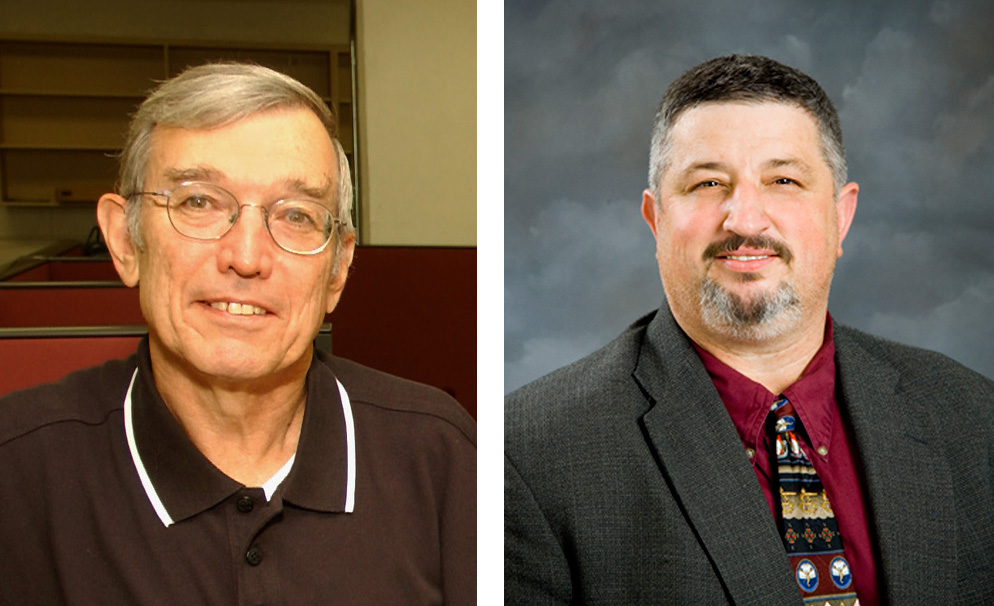Contact: Phil Hearn

STARKVILLE, Miss.--Mississippi State will move forward with plans to establish a Jackson-based training center for cyber crime investigators, thanks to an anticipated new $2.5 million grant from the U.S. Justice Department.
The university's Center for Computer Security Research received an initial DOJ grant of nearly $1 million last summer to plan creation of the Joint Cyber Crime Fusion Center. It will be located downtown at the Sillers State Office Building.
CCSR director Ray Vaughn said the latest grant will allow expansion of the scope and capabilities of the Jackson center, which will open early next year as a centralized operational and training facility devoted to fighting computer-related crimes. The state Attorney General's Office, FBI, Jackson State University and the University of Mississippi School of Justice and Law are other partners in the project.
"Right now, the training is taking place here at MSU," said Vaughn, the university's Billie J. Ball Professor of Computer Science and Engineering. "We have courses scheduled for the future and have taught some already. They are being taught by David Dampier, who heads the Computer Forensics Training Center within CCSR.
"We are developing a training program for state and local law enforcement officers in the Southeast that will focus on computer forensics investigation, and the specific process and procedures that must be followed," added Vaughn, a retired U.S. Army colonel. "JSU will be developing a forensics training capability to help us train."
Vaughn and Dampier, who created and teaches a popular MSU computer forensics course, conceived the idea for the federal/state/university collaboration. With the help of Sen. Thad Cochran, R-Miss., they were successful in pushing for funding through the DOJ's Bureau of Justice Assistance.
"Dr. Vaughn and Dr. Dampier have done an outstanding job of creating a successful collaboration that will provide great benefits to the state of Mississippi, as well as the nation," said Julia Hodges, professor and head of MSU's department of computer science and engineering, which is part of the Bagley College of Engineering.
"It is critical to the security and safety of our citizens that our law enforcement agencies are well trained in the investigation of criminal activity that involves the use of computers," she added.
While the attorney general's office has only one computer forensics examiner and three cyber crime investigators, authorities note most state and local law enforcement officials have no background in the special investigative techniques needed to solve cyber crimes. Attorney General Jim Hood expressed hope the joint center will help bridge classroom instruction on the Starkville campus with on-the-job training in Jackson.
"We want to set up a computer security training center in Jackson," Hood said during a visit to the MSU campus last spring. "State and local law enforcement officers will get classroom training at MSU, then come to Jackson for the hands-on work."
Vaughn, a Hattiesburg native, said intensive classroom training at MSU provides officers with the basics of conducting forensics investigations of such computer crime as child pornography and identity theft. Search-and-seizure procedures also are taught.
MSU is one of 66 institutions nationwide designated by the Department of Homeland Security and the National Security Agency as a National Center of Academic Excellence in Information Assurance Education.
"MSU research programs are impacting the security of the nation and creating jobs in Mississippi," said Colin Scanes, the university's vice president for research and graduate studies. "This new partnership is a good example of how university resources and expertise may be applied to enhance personal security."
NEWS EDITORS/DIRECTORS: For more information, contact Dr. Vaughn at (662) 325-7450 or Vaughn@cse.msstate.edu; or Dr. Dampier at (662) 325-8923 or dampier@cse.msstate.edu.